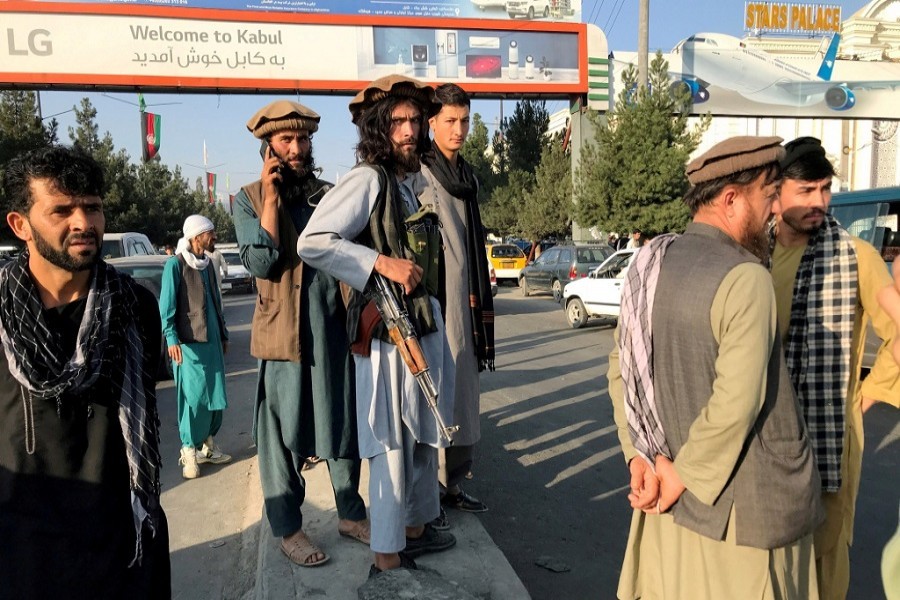
Published :
Updated :

With the Taliban being in full control of Afghanistan, the world's attention is now focused on transition of power in Kabul. Will it be a peaceful one resulting in an inclusive government? Or a replica of the hard-line Islamist one that the US forces dislodged in 2001? Seeing that over the past few days all the remaining provincial capitals fell to the Taliban forces without any resistance, or bloodshed, one would like to believe that the power transfer will also be peaceful. However, considering that the Taliban won against their adversary, the immediate-past Kabul government and its armed forces, hands down, they, as the victors, are in a position to dictate terms in the likely parleys over power sharing. In this situation, for the talks to succeed, the Taliban will have to demonstrate the necessary will and the readiness to accommodate the other, though weaker, side's point of view. At this point, the Taliban may like to recall the views they expressed at various forums earlier that they were for an inclusive, transitional government in Kabul. Hopefully, they would live up to the expectations.
After all, they should be wiser now with their two decades of harsh experience of being in the wilderness and fighting against the world's mightiest power, America. But given their past records when they were in power between 1996 and 2001, the world at large will be intently watching and weighing every of their words and actions. However, the situation in Afghanistan at the moment is in a state of flux. At such times, it is not possible to say with certainty how things in Kabul are going to finally evolve. Here lies the real danger. For, there is the issue of safety and security of millions of people who may not see eye to eye with the social, political and ideological views of the Taliban. Also, there is the question of ensuring safe passage of thousands of others who are willing to leave Afghanistan.
Against this backdrop, the Taliban will be expected to respond to the call of the international community to allow safe passage of the people trying to flee the country. To that end, they should keep Afghanistan's common border with the neighbouring countries open so that those seeking to take shelter there may go. Similarly, they should also allow others, who can afford, to fly abroad. At this point, the international community will have to be ready for any eventuality. It will be required to mobilise resources to help millions of people dislocated within Afghanistan during the war as well as extend humanitarian aid to those seeking refuge elsewhere. The neighbouring Pakistan, Iran, Russia, China and other countries are expected to extend their cooperation in this regard. It is important to note at this point that the US and its coalition partners in the Afghan war have been withdrawing their troops in line with the accord the former US government had signed with the Taliban in February 2020. The incumbent US president, Joe Biden, in April this year had also announced his plan to go ahead with US troops withdrawal according to that agreement. In that case, the US and its allies cannot wash their hands of the situation now created in Afghanistan as a consequence of withdrawal of their troops. As such, they have a crucial role to play in addressing the humanitarian emergency now unfolding in that country.


 For all latest news, follow The Financial Express Google News channel.
For all latest news, follow The Financial Express Google News channel.